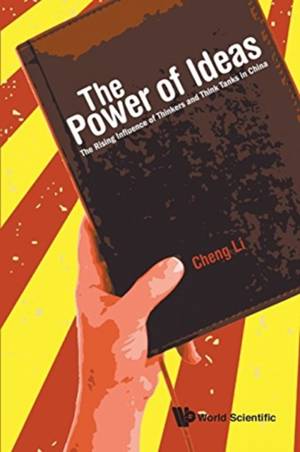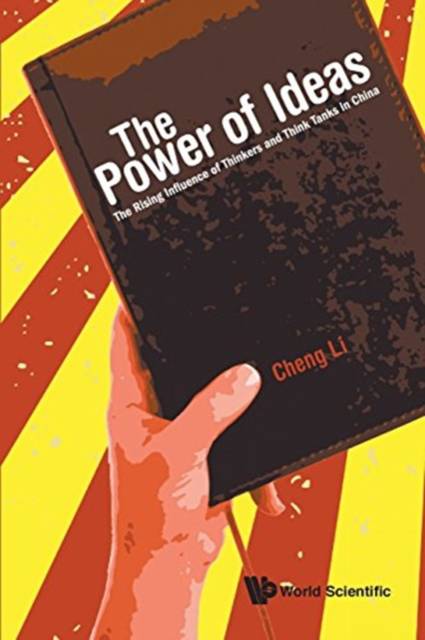
- Retrait gratuit dans votre magasin Club
- 7.000.000 titres dans notre catalogue
- Payer en toute sécurité
- Toujours un magasin près de chez vous
- Retrait gratuit dans votre magasin Club
- 7.000.0000 titres dans notre catalogue
- Payer en toute sécurité
- Toujours un magasin près de chez vous
Description
"In this fascinating study, leading American China scholar Cheng Li has written and compiled an unprecedented volume on China's rapidly growing community of think tanks. The study includes a thorough inventory of China's research institutions (government and private), and it offers compelling case studies of four leading public intellectuals. But the best part is Cheng Li's own deep insights into this community of thinkers and institutions, their relative strengths and weaknesses, and impact on China's domestic and foreign policies. This volume should be mandatory reading for all China specialists."
David Shambaugh
George Washington University and
author of China's Future
China's momentous socioeconomic transformation is not taking place in an intellectual vacuum: Chinese scholars and public intellectuals are actively engaged in fervent discussions about the country's domestic and foreign policies, demographic constraints, and ever-growing integration into the world community. This book focuses on China's major think tanks where policies are initiated, and on a few prominent thinkers who influence the way in which elites and the general public understand and deal with the various issues confronting the country.
The book examines a number of factors contributing to the rapid rise of Chinese think tanks in the reform era. These include the leadership's call for "scientific decision-making," the need for specialized expertise in economics and finance as China becomes an economic powerhouse, the demand for opinion leaders in the wake of a telecommunication revolution driven by social media, the accumulation of human and financial capital, and the increasing utility of the "revolving door" nature of think tanks.
It has been widely noted that think tanks and policy advisors have played an important role in influencing the strategic thinking of the top leadership, including the formation of ideas such as the "Three Represents," "China's peaceful rise," "One Belt, One Road," and the founding of the Asian Infrastructure Investment Bank (AIIB). In 2014, President Xi Jinping made think tank development a national strategy, and he claimed that "building a new type of think tank with Chinese characteristics is an important and pressing mission."
Though the media outside China has often reported on this important development, it has all but escaped rigorous scholarly scrutiny. This book will categorize Chinese think tanks by their various forms, such as government agencies, university-based think tanks, private think tanks, business research centers or consultancies, and civil society groups. It will not only analyze the problems and challenges in China's think tank development, but also reveal the power of ideas.
Spécifications
Parties prenantes
- Auteur(s) :
- Editeur:
Contenu
- Nombre de pages :
- 372
- Langue:
- Anglais
Caractéristiques
- EAN:
- 9789813232181
- Date de parution :
- 24-03-17
- Format:
- Livre broché
- Format numérique:
- Trade paperback (VS)
- Dimensions :
- 152 mm x 229 mm
- Poids :
- 494 g

Les avis
Nous publions uniquement les avis qui respectent les conditions requises. Consultez nos conditions pour les avis.






